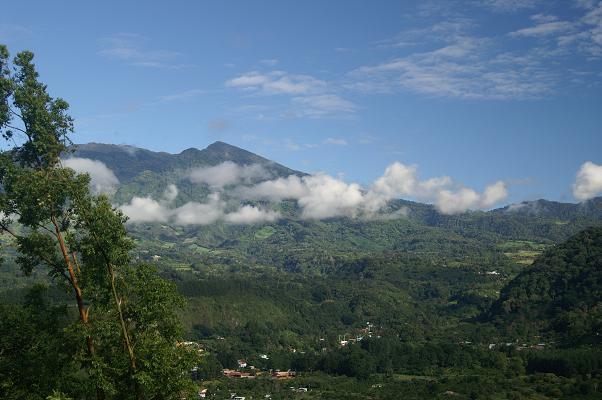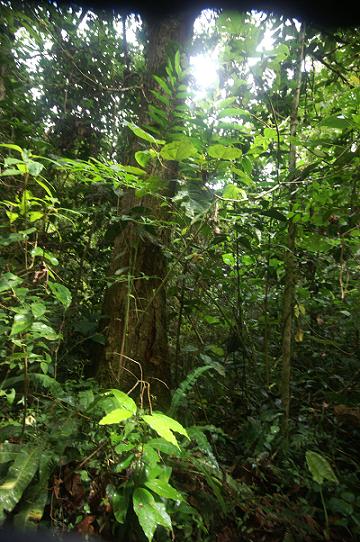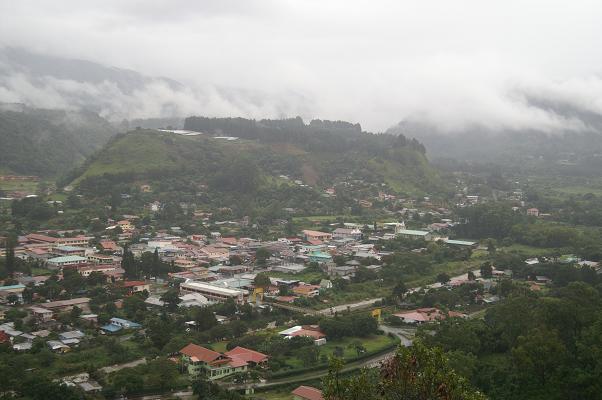The news, by now, has been told by media all over the planet, even reaching to top of the Google News reports on Christmas Day. A plane crash on Sunday, December 23, in Panama killed Santa Barbara County residents Michael Klein, 37, a whiz-kid-turned-hedge fund-managing millionaire who owned the Islas Secas resort; his daughter Talia, a 13-year-old Crane Country Day School student; and their Panamanian pilot Edwin Lasso, 23, who was at the helm of the Cessna 172 when it went down. The sole survivor was Francesca “Frankie” Lewis, a 12-year-old Crane student who was found by a team of rescuers wandering the jungles near the crash site. Lewis had broken arm and hypothermia, according to the Associated Press, but told her father over the phone, “Hi daddy. See you soon.”

Yet to be explored is the state of aviation in Panama, a weather-whipped country that’s linked – at times perilously – by air travel, from the sandy, windswept islands like Islas Secas to the thick, wet, and jungled hillsides in the interior, such as those on Volc¡n Baru, where the Kleins’ plane went down. I visited Panama last summer, and traveled throughout the isthmus mostly through the air, hitting Panama City, the San Blas Islands near Colombia, the Bocas del Toro Archipelago in the northwest near Costa Rica, and the quaint coffee town of Boquete, the volcano-side hamlet where the Lewis family and Kim Klein, Michael’s ex-wife and Talia’s mother, converged to learn about their respective relatives’ fates. All destinations were reached by air, and I noticed that small, propeller-powered planes are the preferred – and often only – method of travel to small country’s remote regions for tourists and locals alike.
The weather – which ranged from windy, rainy, and cloudy with thunder and lightning to sunny and crystal clear on a single flight – was variable, yet did not stop pilots from taking off once. That’s a testament to the country’s pilots, who are well-trained and professional, and to the efficiency of the aviation system. But it’s also a sign that the air above Panama is treated very much as a Wild West zone, where guts and bravado often win out over better judgment with the goal of keeping to a schedule and pleasing customers.

Of all the flights I took, the bumpiest was the ride from David, the capital of the Chiriqui state, to Bocas del Toro. This is roughly the same route that was traveled by the Klein plane, which was reportedly on a sight-seeing expedition toward the town of Volc¡n on the westside of the Baru volcano, no doubt to look into the craters and upon the undulating mountains that make up the continental divide.
My flight took off in sunny weather near David – the country’s second largest city and home to the western region’s commercial airport – and ran into thunderstorms above the volcanoes, causing some passengers to grab their neighbors and shoot fearful glances. Nonetheless, the plane landed fine in Bocas, again beneath clear, sunny skies. I got the distinct feeling that such flights on that route were the norm, with the coasts clear and the inland mountains harboring storms. That being said, when leaving the San Blas Islands from an airstrip with literally a shack as a terminal, I flew out over the ocean amidst lighting and thunder, and no one seemed to balk at that. Bad weather, I learned, was no impediment to getting somewhere. If anything, it was a challenge for pilots, and a chance for bragging rights to us passengers. For the locals, it was assuredly the only flying conditions they knew.

Of course, any pilot will tell you that rain, lightning, clouds, and thunder – the sort of weather us non-pilots consider particularly bad – aren’t necessarily barriers to safe flights. Indeed, hot days, and the rising waves of air they produce, are often more troublesome than rain. And in tropical regions like Central America, where inclement conditions can swoop in unannounced, air travel cannot afford to be unimpeded by weather worries – at least, until unfortunate crashes like this happen.
In the case of the Kleins, their flight seemed to be for pleasure. Reports say that the weather in the region was rainy and cold, yet it’s unclear to me whether that is for the crash zone or for the private Islas Secas strip where they took off. Or, perhaps, both. If it was both, and the weather was poor everywhere, questions are sure to arise over whether sight-seeing was even possible that day, and why the flight was taken in such conditions. If it was clear on the coast and messy in the mountains, it would appear to be just another flying day in Panama, and truly a tragic accident.

 on Google
on Google 

